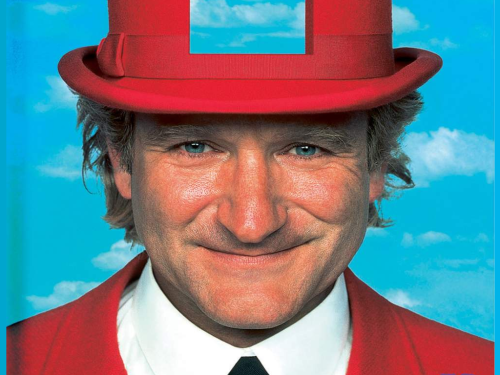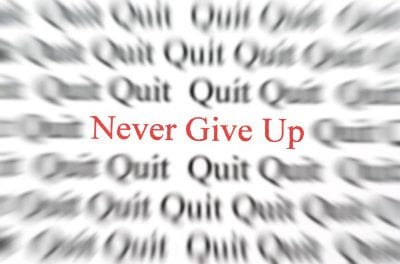As the news emerged that Robin Williams was facing severe financial pressure, perhaps to the point of it being a life crisis his death became for me both more tragic and more emblematic of the looming Boomer financial challenge
Author’s note: I wrote this as a cathartic exercise for myself and debated whether or not to publish it, for fear of being accused of click baiting. Yet his circumstances, his age and his death by his own hand raise some important issues for those of us selling to the Boomer and older generations.
I confess that the suicide death of Robin Williams hit me harder than I would have ever imagined. I think what made him so unique was that he was kind of like that weird, geeky kid in middle school or high school that you laughed at and with, envied but didn’t want to be like. At the same time you looked at him and thought, “He is so funny, and I almost think I could do that if I could just let go of the embarrassment factor.” At the end of the day he was able to make us laugh and cry and gave us hope in a way that stayed with us beyond the performance itself. Somehow he allowed us, for at least a few days, to see the world with more hope and more good humor. Yesterday, as the news emerged that Robin Williams was facing severe financial pressure, perhaps to the point of it being a life crisis, I thought about our shared generation. His death became for me both even more tragic and emblematic of the looming Boomer financial challenge, one that could prove a life crisis for many, many Boomers.
Living Hard, Fast and Large
I confess that, when I first heard Williams had committed suicide, I was amazed and disgusted. I thought, “How dare he do this to those he loved?”, particularly given his success and wealth. As the reports about his battles with drugs, alcohol and depression came out, I was no more sympathetic. Rather, at some level, I was even more angry, seeing the drugs and alcohol as bad, self-indulgent choices. Then, after hearing about his financial crisis, I came to realize that, in a bigger than life way, he represents the emerging Baby Boomer plight:
- He was brilliant, he worked hard and he made great money.
- He lived life to the fullest, taking advantage of a time in our society when there were so many opportunities to spend money on pleasure.
- I suspect that, along the way, there were times when he looked at his financial situation and realized he should be more responsible, but thought that there would be enough time do that later. The problem is that, for all of us, even the wealthy, as income increases, the financial obligations also seem to increase, at an even more rapid pace.
- Then, in his 60’s, the big pay day offers slowed down. His most recent television show was canceled, his latest movie bombed and he needed money, but it wasn’t so easy to get.
Boomers: My Generation, His Generation
This is the plight of the Boomer Generation. Saving was not so important and there were . . . and are . . . so many demands for cash. We didn’t stay employed at the same company for 30 or 40 years, racking up a decent pension. Saving was hard, spending easy. Then the economy crashed and many boomers lost their jobs, cashed in their tiny retirement accounts and mortgaged their homes. A few will be fortunate enough to inherit additional resources that will allow them to have a comfortable retirement but most will not. On one hand one might argue that, like Williams, these are self-inflicted circumstances. Even if that is true it does not solve the problem. Somehow, as a nation, we need to be thinking about how to care for my spendthrift generation. The senior living industry needs to be thinking about how we might create products that will meet this emerging need. It could be our opportunity to prevent these self-inflicted but despair inducing deaths. Steve Moran
If you like this article (or even if you don’t) it would be a great honor to have you subscribe to our mailing list HERE









Thanks for opening up this conversation. The highest rate of suicide in the US is among people 65 and older, and current economic conditions and the surge in aging population bodes ill for the future of that trend. The crisis is coming, but I don’t see may administrators willing to face up to it. I you or your readers know of further articles or research about this subject, I’d love to know about it.
Here is a link to one with facts and tips: http://www.idph.state.il.us/about/chronic/Suicide-Older_Adults.pdf
Steve-Your comparison of Robin Williams to the average baby boomer is a leap, a big leap. The only similarity between Robin Williams and the baby boomers is his age. Your analysis of the economics affecting baby boomers is simplistic in light of the fact that you make the baby boomers plight all about their being spendthrifts. The economics of that generation are much more complicated than spending and not saving. The harsh reality is that much wealth of the baby boomers was diminished by lapse in public policy and financial greed. We can agree that the prevailing issue is what do we do now and what do we do in the prevailing future. Here are some thoughts: 1. Revise the regulations related to long term care. 2. Tackle the fundamental issues of direct care workers related to pay and training before it is too late. 3. Continue to revise tax codes to support accelerated retirement savings. 4. Improve ways for aging in community, which has multiple benefits and “it takes a village”. 5. Collaborate with family and friends in caring for the elderly because no matter the financial resources, there are not enough caregivers. Lastly, I think many baby boomers will commit suicide or think seriously about it and it is not all about money. There is zero role in our commercialized culture for “elderhood”; we remain an anti-aging culture. The real life movie we can correlate between Williams and all baby boomers is the declining worth movie. That is the big picture. We regret that we will not live tomorrow with Robin Williams and he will be missed.
Hi Amy:
Thanks for the link.
Steve
Debbie, some great points and while I agree that it is much more complicated than simple finances, I believe for many, particularly males finances become the focal point.
While to some degree it is more complicated than Boomers being spendthrifts, I do think that is a contributing factor. As a Boomer and living more of a spendthrift life than I like admitting I do believe that if I had lived my financial life more like the silent generation I would have much more substantial savings.
Steve
“I believe for many, particularly males finances become the focal point.” Can you clarify what you mean by that?
The revelation that Williams was suffering from Parkinson’s Disease is far more relevant to his suicide than his financial circumstances to my thinking. I have had the conversation with many people about suicide as an option to enduring the horrors of a degenerative disease and/or loneliness and isolation with no relief in sight. I am not afraid of death, but I am afraid of dying.
Sure. It is just that males are far more likely to judge their lives as successful or a failure based on their financial circumstances. Make lots of money successful, little money not successful. Grow your wealth successful, lose your wealth failure. Please note, I am not particularly endorsing this as a good thing.
Steve